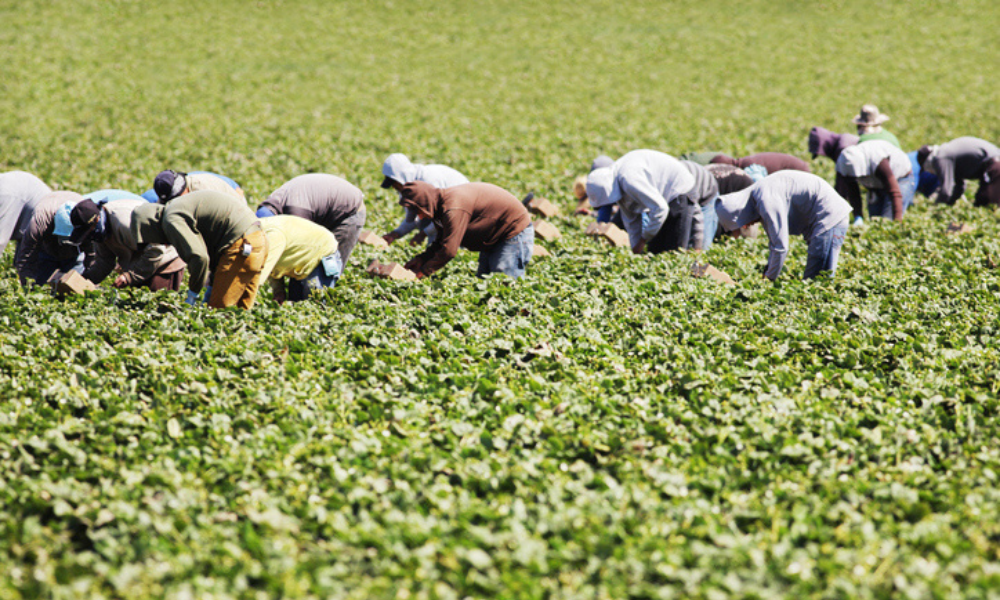Widow of Jamaican worker injured in Ontario in 2008 calls for 'better' treatment

One Jamaican widow is calling for “better” treatment for seasonal workers in Canada following the death of her husband in January years after getting injured on the job in Ontario.
Jeleel Stewart, 49, died at Spanish Town General Hospital in Jamaica on Jan. 24, his wife Suzana told CBC.
Jeleel's left hand was crushed by a forklift in a 2008 accident at Mori Nurseries, which closed in 2015. From until the time of his death, he had been seeking compensation from Ontario's Workplace Safety and Insurance Board (WSIB).
"What I would like for the farm workers is better [treatment]," Suzana told CBC.
Jeleel who had returned home to Jamaica after his injury due to his inability to work. He then received compensation from the WSIB for two years after the accident. The payments, however, stopped in 2010 as the WSIB deemed he was fit to go back to work.
However, Jeleel's health gradually deteriorated from the time of his injury, noted Suzana in the report. Months before his death, Jellel suffered a stroke, developed high blood pressure, kidney and heart failure, and was always in pain, she said.
"I just want things to [be] just better for other farm workers up there [in Canada]. Things could have [been] dealt with better [for Jeleel] but it's just so it goes,” she said in the CBC report.
Until the time of his death, Jeleel was awaiting an appeal hearing after a tribunal ordered a review in September, 2023.
"We are asking that they review any decision in which a foreign agricultural worker was deemed using the Ontario labour market," David Arruda, Jeleel's case worker at community legal clinic IAVGO, told CBC before Jeleel's death.
"The hope would be that when the review is completed, his case will also be one of the one that was reviewed... We want to get him the benefit that he deserves, obviously, as soon as possible.”
WSIB’s ‘Deeming’ policy is ‘dehumanizing’
Meanwhile, Jane Andres, who has been assisting Jeleel's family financially for more than a decade, claimed that WSIB’s deeming policy is not fair.
"WSIB is counting on the fact that injured workers do not have the resources and their voices are deliberately silenced once they've been repatriated," Andres, according to the CBC report.
"The 'deeming' policy itself is deliberately dehumanizing. It's an intentional design and they need to reinstate compensation for all the injured workers who were previously denied.
"When he got the letter from WSIB in 2010, we thought, 'Oh, surely this is a terrible mistake,' because they stated that you still have one good hand, therefore you could work as a cashier at a gas bar in Niagara.”
Christine Arnott, spokesperson for WSIB, has a responsibility to treat people “with humanity”.
When people from other countries come to Ontario farms to seek employment, it is the WSIB's responsibility to be there to help if they suffer a workplace injury or illness, she said.
And that responsibility does not end when the person returns to their home country, especially if the injury is a life-altering one.
"We launched a review late last year of how claims for people in the federal Seasonal Agricultural Worker program are handled to ensure we are taking a fair and consistent approach that recognizes the realities of people's local markets after they return home,” she said, according to the CBC report.
"Our goal is to clarify how we adjudicate these claims and determine whether previous decisions should also be adjusted. The results of the review are expected to be released soon," Arnott said.
"This is about doing the right thing and treating people with humanity, dignity and respect. Everyone deserves a safe workplace."





